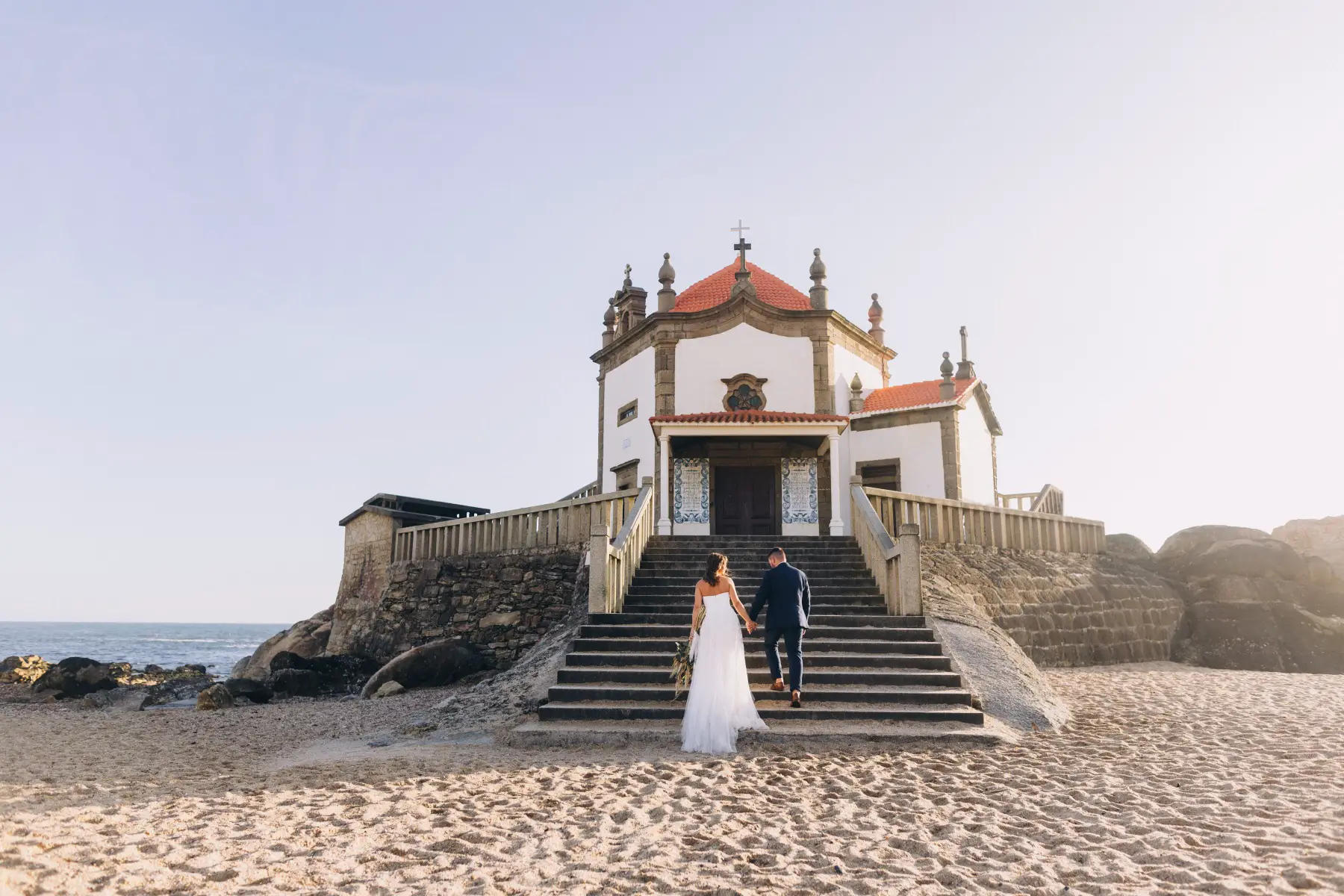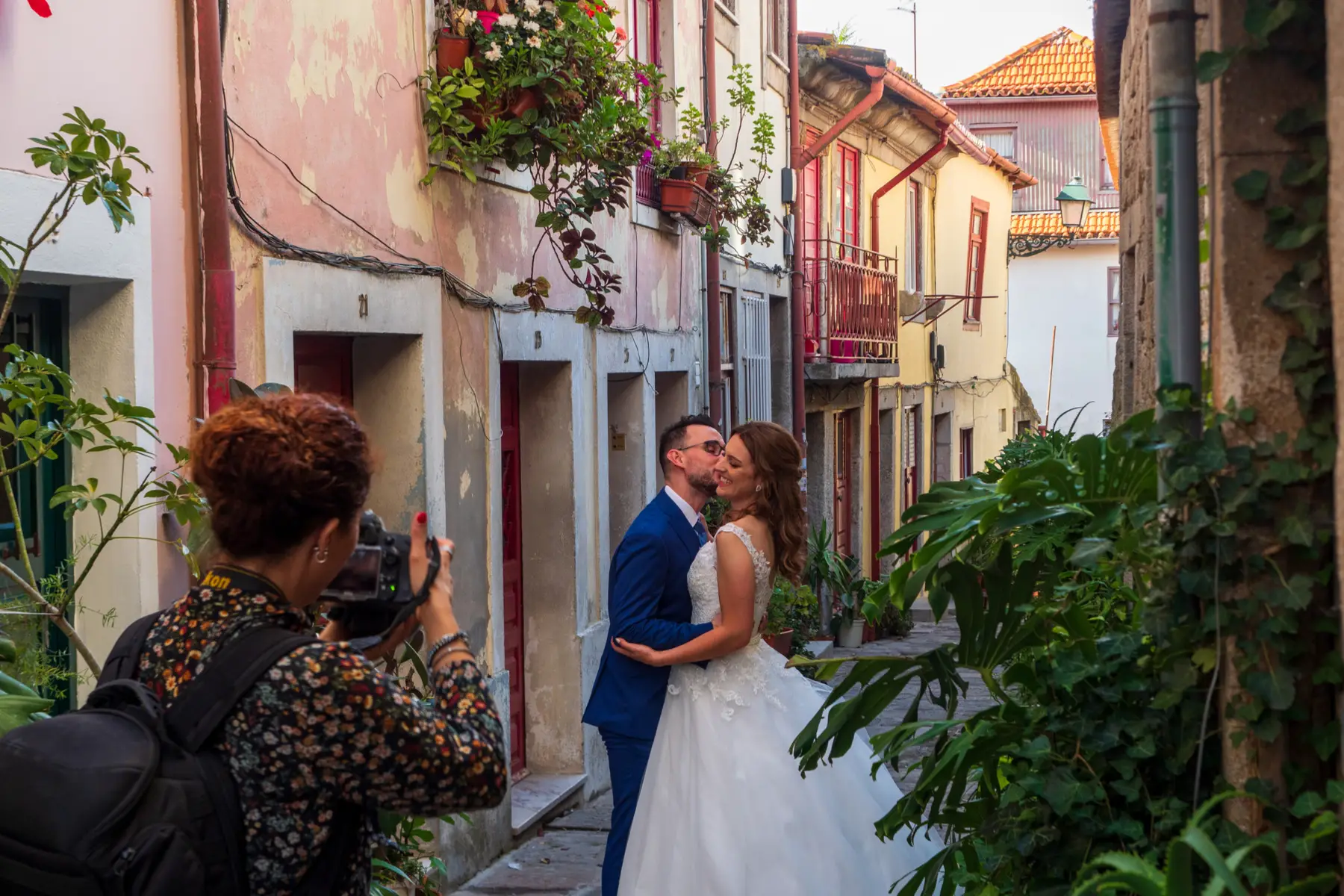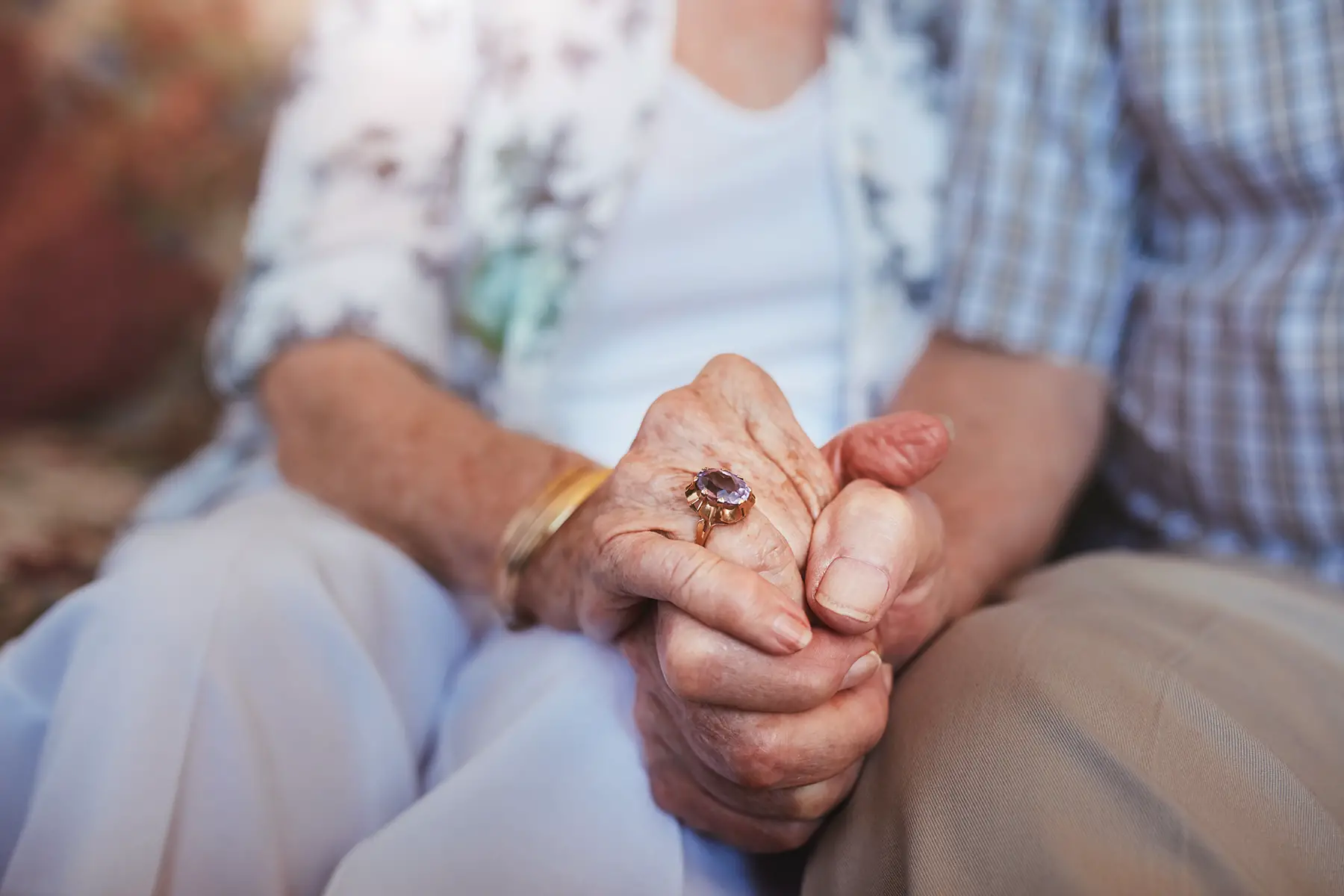Imagine strolling through Lisbon’s cobbled streets, hand in hand with someone special, or sharing a laugh over pastéis de nata at a cozy café. Dating in Portugal has all the ingredients for romance – warm people, a relaxed vibe, and plenty of opportunities to meet someone new.
But what’s it really like to date there? Whether you’re swiping right or striking up a conversation at a local festa, here’s what you need to know:
Find love with Expatica Dating
Are you looking to meet single expats and potentially find ‘the one’? Finding love as an expat can be challenging, but that’s where an online dating site can help. Expatica Dating will help you meet eligible singles in Portugal and find the perfect match. Register for free today and begin your quest!
Is it easy to date in Portugal?
Around a quarter of the Portuguese population (24.8%) lives alone (Instituto Nacional de Estadística, 2021). Within the regions, the share of single-person households is:
- North (Norte) – 21.0%
- Center (Centro) – 25.2%
- Lisbon (AM Lisboa) – 28.2%
- Alentejo – 27.2%
- Algarve – 27.2%
- Azores (RA Açores) – 20.3%
- Madeira (RA Madeira) – 23.6%
Of course, it would be wrong to assume every one of those is also single (i.e., without a partner). Similarly, single people living with flatmates are also not accounted for. But with those statistics being the only ones available, it’s hard to say whether dating in Portugal is easy or not.

According to one report, however, the Portuguese dating culture has shifted somewhat from serious commitment to casual dating. For example, men are no longer looking for someone to take care of them, whereas women no longer need a partner to afford a stable (family) lifestyle. Both genders value their independence and aren’t necessarily looking for something serious.
Though this doesn’t sound too bad, it also comes with a flipside. Many singles fear commitment, especially when it comes to ‘staying together forever’. People have set higher standards for their future partners and refuse to settle for someone who isn’t perfect.
Portugal’s socio-economic factors (like financial strains and job insecurity) are also at play. Some singles simply cannot afford to build a future with a long-term relationship.
How do you meet single people online in Portugal?
The best dating websites in Portugal
Unsurprisingly, in the modern era, one of the easiest ways to enter the Portuguese dating scene is by going online.
To meet other single, like-minded internationals, try our own online dating service: Expatica Dating Portugal. Popular with both men and women, it helps to connect people who share similar interests and passions and ultimately find love in the Iberian corner.
Other popular dating sites are Badoo, Felizes, Meetic, and OkCupid, which are free to use but may require payment in order to access special features.
The best dating apps in Portugal
International dating apps such as Boo, Tinder, and Bumble are common in Portugal. Hinge is also popular – this app matches your profile with similar singles and promises to help you find your soulmate.

The social eating app Timeleft offers a great alternative. This app allows singles to meet and share dinner with four strangers, and although it’s primarily focused on creating friendships, you might meet someone who’s open to something more.
Meanwhile, Flava is used for Portuguese singles interested in hooking up. The app claims to take online dating to a new level, as is clear from its strict privacy policies.
Singles looking for same-sex relationships will want to check out the dating apps Disco, Her, Taimi, and Zoe. The open-minded dating app 3fun is another popular option for the LGB and the curious.
As might be expected, users of dating apps tend to stumble upon the same issues in Portugal as they would in other countries. For example, the apps are primarily geared toward making rapid decisions and going on casual dates. So, if you are looking for a genuine connection, you may be better off signing up for a website or meeting someone in person.
How do you meet singles in person in Portugal?
If online dating is not for you, then in-person meetups can be a good alternative. You can start by going to social events organized by Meetup groups. There are numerous events throughout Portugal, particularly in larger cities and towns, that allow you to meet people in a fun and safe way. Even if you don’t find the love of your life, you might make some new friends.
Another great way to meet potential partners is by joining a local sports club or association. From cooking classes to surfing groups, this poses a great way for you to meet new people and bond over shared passions and interests.

Meeting people through friends
Of course, you can also reach out to your social and professional network to find a date. If you have friends or close work colleagues you trust, see if they know of any suitable singles they could set you up with. Otherwise, keep an eye out for social gatherings and do some searching yourself.
If you’re feeling confident, Portugal has plenty of opportunities to acquaint yourself with strangers, for example, in bars, at clubs, or at a local event or festival. Some people also meet their partners while volunteering; you just have to be a little outgoing.
While this method requires more effort, it can be rewarding to find attractive singles without the worry that their online personality might not match their real-life one.
Local speed dating events
Speed dating is another interesting way of meeting potential dating partners in Portugal. This is where singles meet at a venue and are matched for a series of quick-fire conversations with others to see if compatibility or a spark exists.
You can find events near you on websites such as eventbrite, which advertises events all over the country. Social networking sites like Facebook and Instagram may also have details of upcoming mixers or speed-dating events.
What is the dating etiquette in Portugal?
Generally speaking, Portuguese people are warm and friendly, though tend to be shy and reserved when it comes to dating. They like to keep things casual early on and take some time to open up.

Here are some of the more common scenarios you may find yourself in while dating in Portugal.
A typical dating scenario
First dates usually involve getting coffee at a café, going for a walk in the park, or having a picnic. Some singles are more adventurous and invite you out to go sailing or surfing. As time goes on, dates will likely center around your shared hobbies and interests. For example, you could visit a museum, have a wine tasting, or watch the sunset at the beach.
Dates are typically lighthearted and relaxed but can be more tepid than in other countries. Portuguese men and women value modesty and subtlety, and big romantic gestures are not common.
PDA (public displays of affection) is normal, but it tends to be moderate rather than overly demonstrative. Hand-holding, hugging, and light kissing won’t raise any eyebrows, though anything more intense will draw disapproving looks.
Dating behavior in Portugal
While Portuguese culture and social norms are distinct in many ways, first-date etiquette is fairly typical. People are generally warm and easy-going, meaning that the dating atmosphere is usually casual and fun. The relaxed attitude does not extend to punctuality; people consider it terribly rude to keep people waiting, and being late is definitely frowned upon.

The dress code is smart casual, though conservative. That said, it all depends on the date; a fancy dinner date requires a different outfit than a walk at the beach. Still, it’s best to dress well and not show up in ripped jeans, shorts, or shabby sneakers.
When it comes to talking points, you’ll want to stay clear of topics like politics, religion, and colonialism. Comparing Portugal and Spain (or assuming they are similar) is also a big faux pas, and you’ll unlikely get a second date.
It’s worth noting that the country is pretty monogamous, and dating multiple people at the same time isn’t particularly common. Many people will assume exclusivity unless explicitly stated otherwise.
Gender roles in Portugal
Portugal has long struggled with gender inequality. In the past, women were often seen as fragile and weaker. It’s perhaps understandable then that the younger generation of women is hyper independent and assertive.
When it comes to splitting the bill, it’s assumed you’ll both pay 50/50. If someone offers to pay in full, the other will usually take care of the bill next time. If you’re dating someone older, it’s likely that the man will insist on paying.
While Portuguese women are independent, that doesn’t mean they don’t appreciate chivalry. Indeed, most men will open doors and help their dates with their coats. Again, big romantic gestures are not the norm, as Portuguese culture appreciates modesty.
Because of its history of male chauvinism, some men are less prone to show their emotional side and can become possessive when the relationship becomes serious.
What are Portuguese relationships like?
Despite people’s reserved nature and breezy approach to dating, things can escalate quite fast in Portugal. Many couples expect to go from a casual to a committed relationship rather quickly.

People usually move in together after a year or two of dating. Living together is typically a sign that you both see a long-term future together. Many couples will wear promise rings to signify their commitment to each other.
When do you meet your partner’s family?
Due to Portugal’s high youth unemployment rate and housing costs, it’s common for young people to live with their parents well into their thirties. In 2021, 56.4% of people aged 25–34 hadn’t moved out of their family home yet. Given these living arrangements, you may – unintentionally – meet your partner’s parents fairly early on. However, if they have already moved out, you can expect to meet your partner’s family after three to six months of dating.
Portugal has a strong family culture, so meeting the family-in-law isn’t necessarily seen as a huge step. That said, if you’re getting an invite to a big family dinner, it’s usually a sign the relationship is getting serious.
Getting married in Portugal
The role of the family in weddings
In Portugal, wedding proposals were traditionally a family affair, and it’s still considered respectful for the groom-to-be to ask permission to marry someone’s daughter first. That said, it’s more common for couples to get engaged and simply announce it to their parents afterward.
The future bride typically gets a decorative engagement ring from her partner. It can be any ring and doesn’t necessarily have to be a diamond – as long as it’s a bit flashier than a simple band.
The challenges facing unmarried couples
Marriage isn’t seen as an absolute necessity for a committed relationship, especially in larger cities like Lisbon and Porto. Many couples live together for years without feeling pressured to ‘make things official.’
That said, the older generation still sees marriage as the ‘proper thing’ to do. Relatives may ask couples when they’re getting married, especially if they’ve been together long. This shouldn’t be taken as family pressure, more as people being nosy.

Portugal recognizes common law marriages (uniões de facto), which grant unmarried couples some legal protections similar to marriage after two years of living together. However, joint taxation is not available to unmarried partners, and they will need to fill out additional paperwork to access rights to inheritance, hospital visitation, or decision-making in medical emergencies.
Things to keep in mind when dating in Portugal
Is Portugal LGBTQ+ friendly?
When it comes to lesbian, gay, bisexual, transgender, and queer people (LGBTQ+), Portugal is one of the most welcoming countries in the world.
Same-sex marriage was legalized in 2010, and the country introduced progressive policy changes and stronger punishments for hate crimes in 2019. Portugal ranks 13th out of 197 in the world on the 2025 LGBT Equality Index. ILGA Europe rates the country similarly, ranking it 11th out of 49, with a score of 66.99%.
Most large cities have an open and accepting LGBTQ+ scene. For example, Lisbon is often praised for its open-minded and tolerant attitude. It’s home to many vibrant bars, clubs, and saunas, and hosts an annual pride (Arraial Lisboa Pride) each year. Other popular LGBTQ+ destinations include cities like Porto and Portimão (the Algarve).
It should be noted that LGBT-phobic behavior is on the rise in Portugal, as well as in neighboring countries like France, Italy, and Spain.
What are the views on mixed dating?
Portugal has a long history of global trade and exploration (i.e., colonialism), so they’re more than familiar with both interracial and interfaith relationships.

Mixed couples will generally find the country to be a welcoming place, especially in cities with large expat communities. In smaller towns, interracial couples may attract more attention simply due to the lack of diversity. While blatant racism is uncommon, occasional microaggressions or stereotypes may still exist, particularly toward Afro-Portuguese and Romani communities.
When it comes to marriage and raising a family, some interfaith couples may have to deal with family expectations, particularly regarding weddings and children’s religious upbringing.
What challenges come with online dating?
Like elsewhere, online dating in Portugal comes with its risks. People might not always be who or what they say they are on their profile or during initial chats. Indeed, the country has recently seen an increase in romance scams, where criminals pretend to be in love in order to steal money from their victims.
Never agree to send money to someone, arrange your first date in a public place, and be sure to tell a friend or family member where you’ll be.
Find love with Expatica Dating
Expatica’s online dating platform is designed with your safety and security in mind. With verified profiles and robust privacy features, you can connect with confidence, knowing you’re in a trusted environment.
Useful resources
- European Banking Federation – website with information on romance scams (also available in Portuguese)
- Culture Atlas – website with more information on Portuguese culture and society, including conversation do’s and don’t’s









